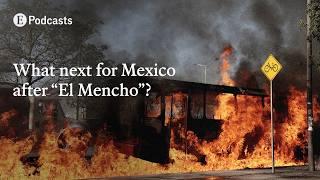| More Americans than ever before say that their vote in the 2020 presidential election will hinge on abortion. Abortion has deepened the polarisation between Republicans and Democrats—and the widening divide is putting abortion rights in jeopardy. Read more here: https://econ.st/2ONtRfC
Click here to subscribe to The Economist on YouTube: https://econ.st/2xvTKdy Political parties in America have been at war over abortion for decades. More voters than ever before say that their vote in the 2020 presidential election will hinge on abortion. Around a quarter of American women will have an abortion. It’s an intensely emotive moral issue across the world. But only in America has it divided politics so deeply. In 1982 Missouri had 29 abortion providers. The state of Missouri has refused to renew the clinic’s licence over an alleged series of deficiencies. If the court upholds the state’s decision Missouri would become the first state in America with no legal abortion clinic. Republican states are hostile to abortion while Democratic states are pro-choice. But this political polarisation is a peculiarly American phenomenon. In the rest of the world, abortion is legal on request So why didn’t that happen in America? If anything Republicans were more pro-choice than Democrats. The main opponents to abortion immediately after Roe were Catholics who tended to be Democrat. The divide was partly engineered by Paul Weyrich a right-wing strategist who, in 1979, saw a political opportunity. Evangelicals made up 29% of the population – Abortion was his ticket to win their vote. In 1980 Republican Ronald Reagan’s presidential campaign capitalised on abortion. Despite previously signing into law the most liberal abortion bill in the country he went on to switch his view and call for abortion to be banned. It was a crucial factor in his win. This vote-winning formula has shaped Republican politics ever since. President Trump too has gone from being pro-choice to a pro-life crusader. In the 2016 presidential election Mr Trump won 81% of the evangelical vote. The fact that abortion is still at the heart of party politics in America means it matters more than ever to voters. 27% of Americans say a candidate must share their views on abortion. That’s a third more than for the presidential election in 2016. Under Mr Trump’s administration Republican states have ramped up their attack on abortion access. Nine states have passed so-called “heartbeat bills” that would ban abortions after six or eight weeks but they all violate the rights granted in Roe v Wade so cannot be put into effect. If one of these bills makes it to the Supreme Court, however everything could change. And that’s what the pro-lifers passing them are counting on. Political tactics are also affecting women’s access to abortion now. Since 2017, 35 Republican states have attempted to strangle abortion access with more than 250 new regulations. In Missouri, women have an initial consultation then have to wait 72 hours before returning for their abortion. For some this means travelling 300 miles back and forth. It’s a fact that Dr McNicholas is keen to report in court. If Missouri’s last clinic closes nearly 1.4m women would be left without state-wide abortion access. Patients would most likely have to cross from Republican Missouri into Democratic state Illinois where protection for abortion has been signed into law. Now the political battle over abortion is literally being fought across state lines. Illinois has opened a new mega-clinic just ten minutes from the border to cater for the abortion demand from women in nearby Republican states. For more from Economist Films visit: http://films.economist.com/ |
Tags:































